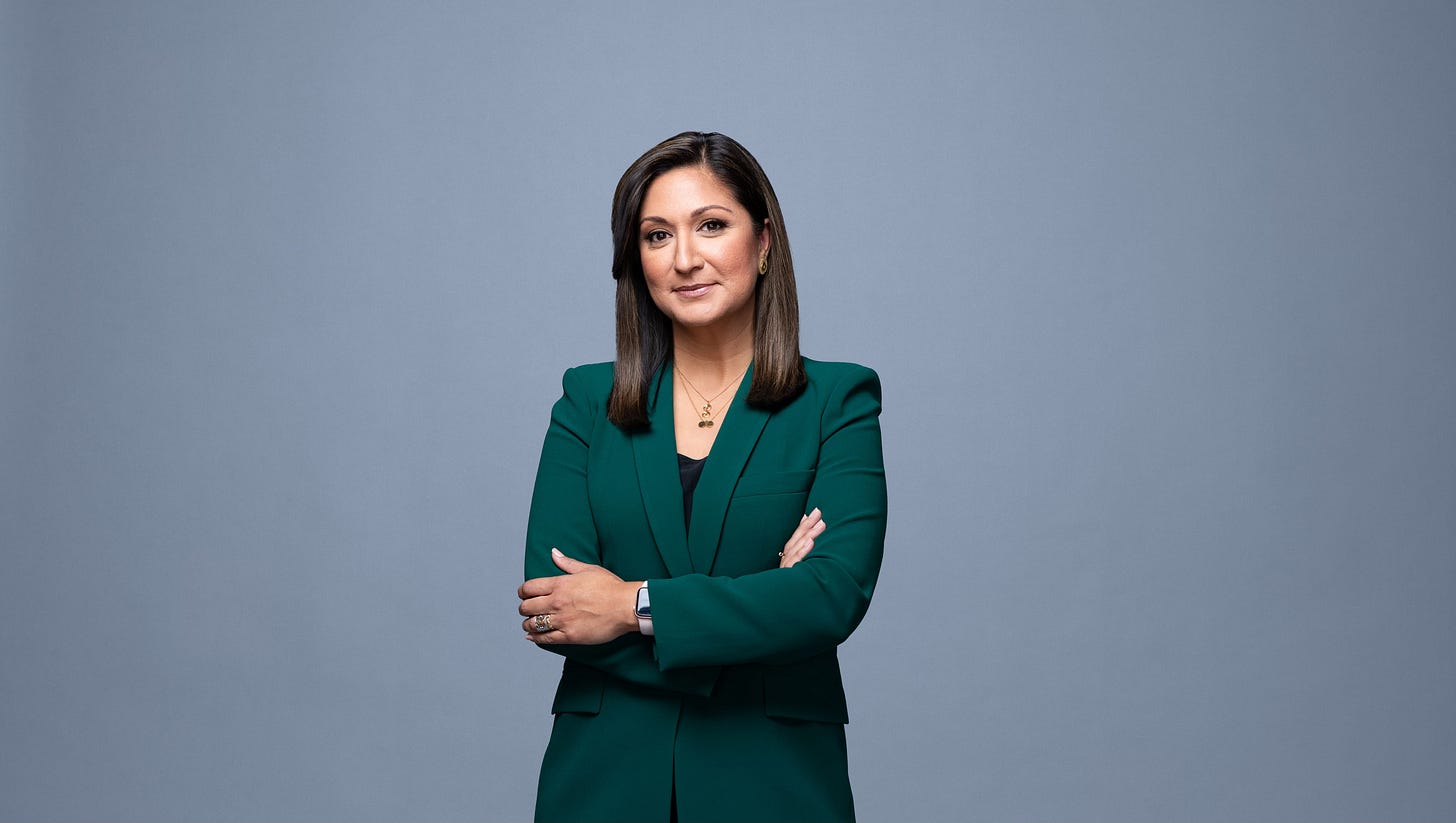What is your current job?
Co-anchor of the “PBS NewsHour.”
What was your first byline?
The first time I saw “By Amna Nawaz” in print was in second grade. I wrote a story about a boy who bit into a magic apple and all his wishes came true. My father had it printed and bound and my teacher — Mrs. Corner — put it in our school library. Big time.
In my news career, my most meaningful early bylines were from my time reporting overseas, in Pakistan and Afghanistan. No one story stands out, but it was the first chapter of my career in which I felt complete ownership of the work, and started to develop my own voice.
What was your first real job in journalism?
Summer of 2001. I joined ABC News “Nightline” on a one-year fellowship in Washington, D.C.
It was meant to be a gap year between college and law school. Weeks after I began, the 9/11 attacks happened. Everything changed. And I never left journalism.
Become a paid subscriber and read the first chapter of the “Your First Byline” book on how to get a job in journalism, based on the advice of more than 140 reporters and editors.
How did you get it?
I applied and hoped for the best! I didn’t know a soul who worked there. I had no ties to the network or the show. I just submitted my resume and application, along with at least a dozen others to various fellowships and entry-level jobs. I went through a few rounds of interviews, and somehow got the job. I had a Politics, Philosophy and Economics degree, a varsity college-athlete career, a thesis from time studying and living in Zimbabwe, and a mix of “real-world” experience — working with a family law non-profit in Philadelphia, among other jobs. It was by no means the typical journalism resume. I’m so grateful they took a chance on me.
Long after I’d gotten the job, one of my bosses told me I’d been the only candidate in the final round with previous experience waiting tables (a previous summer job) and that helped tip the scales my direction. So I suppose you never know what can make the difference.
What advice do you have for people looking to break into journalism?
It's harder these days to have your resume plucked from a pile. And it’s harder to break in without some kind of portfolio of work. But when you get the chance to make your case, I still think having a record of being willing to work harder than most, of doing whatever needs to be done for the team — big or small, and approaching the world with a deep and insatiable curiosity — it all matters, and goes a very long way.




